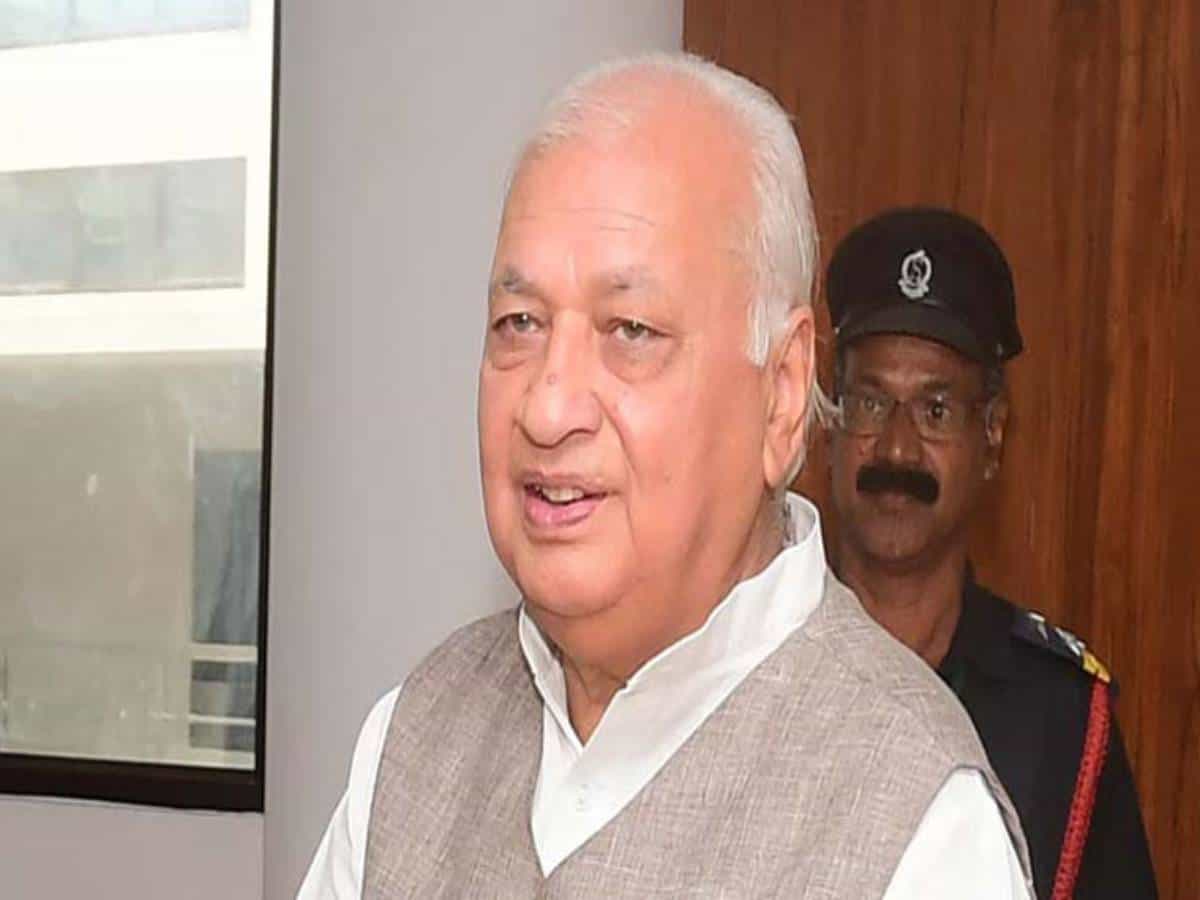
Southern India sprang a surprise when Kerala Governor Arif Mohammad Khan announced to sack nine Vice Chancellors of the state on grounds of questionable appointment. He cites the reason for this as violation of UGC norms.
Certainly, this move sent about shock waves across establishments. The Kerala Governor had alleged several times that the Pinarayi Vijayan government is inclined toward nepotism and favouritism in crucial appointments.
But pointing out procedural violations, terminating university heads from their offices has spotlighted the matter of favoured appointments and varsity head and state government political nexus.
Governor Arif Mohammad Khan issued an order demanding Vice Chancellors of nine Kerala state universities to tender their resignations by the forenoon of October 24.
Adding to this imbroglio, the Supreme Court cancelled the appointment of Dr Rajashree M.S. as Vice Chancellor of Dr APJ Abdul Kalam Technological University (Previously called Kerala Technological University) on grounds that UGC rules were violated during her appointment.
On the basis of this case, the other terminations were similarly announced.
The presence of non-academicians in the selection committee is also cited as a reason for the disqualification of VCs in certain universities as it amounts to violation of UGC norms.
The procedure is that the Search Committee, in order to appoint a Vice Chancellor, recommends a panel of at least three names, from which the Chancellor (who is the state Governor) selects and appoints the VC in keeping with the UGC norms.
In the case of Dr Rajashree, she was the single name on the panel. Thus, her appointment was pronounced null and void ab initio on a petition filed by Professor Dr Sreejith P.S.
As per Section 13 (4) of the University Act 2015, “The committee shall recommend unanimously a panel of not less than three suitable persons from among the eminent persons in the field of engineering sciences that will be placed before the Visitor/Chancellor.”
Conceptually a colonial remnant, a chancellor is the ceremonial head of all universities. Unlike the system in the U.S. where the chancellor is the executive head of a university, in order to handle daily operations in Indian (and several commonwealth nations) universities, there is a vice-chancellor, the apex authority within a university system.
Across Europe, the Rector is equivalent to a VC in England. Australia, on the other hand, unlike other commonwealth countries, has the Chancellor as both executive as well as the ceremonial head.
Interestingly, Down Under, the second to Chancellor is the Pro-Chancellor or the Deputy Chancellor, a post commonly filled by influential people that are not necessarily from the academic domain.
In the Indian context, however, a state’s Governor is the ex-officio Chancellor of its state universities.
This means that the Governor appoints VCs of the state universities in accordance with the legal provisions pertaining to the university, in consultation with the state government — indicating thereby that the appointment of a VC in a state university is a harmonious decision of the Governor and the state government.
But given the violation of the norm which mandates that the Search Committee recommend a panel of three to five names, the recommendation of just a single name as in the case of Kerala, has deemed the appointment illegal.
Although the Chancellor is above the VC in terms of exercising ultimate authority, any constructive contribution to the university system cannot be done single-handedly by the Governor. He needs the aid and advice of the state government and the officials concerned. A sweeping gesture of stiff authority can nonetheless be made by the Governor, as in the cases of Kerala universities.
Kerala Opposition leader V.D Satheesan called this move of the Guv “correcting past mistakes”, as the appointment of VCs — disputed in these cases was made by the Governor.
Of the other state universities whose VCs are sacked, two among them Kerala University of Fisheries and Ocean Studies and Sree Sankaracharya University of Sanskrit were appointed by Governor Khan. The rest were appointed by his predecessor P. Sathasivam.
It is to be noted that once a VC is sacked by the Governor, they lose out on any chance for membership at any academic body in India; nor will they be considered for any Constitutional post in the future. Meaning thereby that such an extreme step by the Governor could kill their further career prospects.
As Chancellor, the Governor wields the authority to grant leave or institute disciplinary action and award penalties. Among several others, he is vested with the power to nominate certain members to the Executive Council, and nominate experts in the appointment of teachers of various categories in the university.
With plenty of powers with the Governor to do things that can count in favour of VC, a negative remark of incidence could prove to be just as serious in magnitude.
While Kerala Raj Bhavan is adamant on its stand, the LDF has, in the wake of these developments, announced a protest march against the Governor on November 15.
A similar situation broke out in Punjab regarding the appointment of Punjab Agriculture University’s VC, Dr Satbir Singh Gosal. The accusations exchanged pertain to “constantly interfering” in the functioning of the state government, and engaging in a “proxy war”, indicating that the Governor was being remote-controlled to oppose AAP Government’s decisions.
It is a lot clearer in the case of Kerala that the government strategically places ideologues in places of influence like universities, to take forward its Leftist agenda.
Further, a Governor is supposed to act on the aid and advice of the Council of Ministers. Additionally, sacking Kerala’s Finance Minister who is crucial to the Council of Ministers — points to a political conflict between the state government and the Governor from the Opposition, carried out by means of procedural glitches of state universities.



